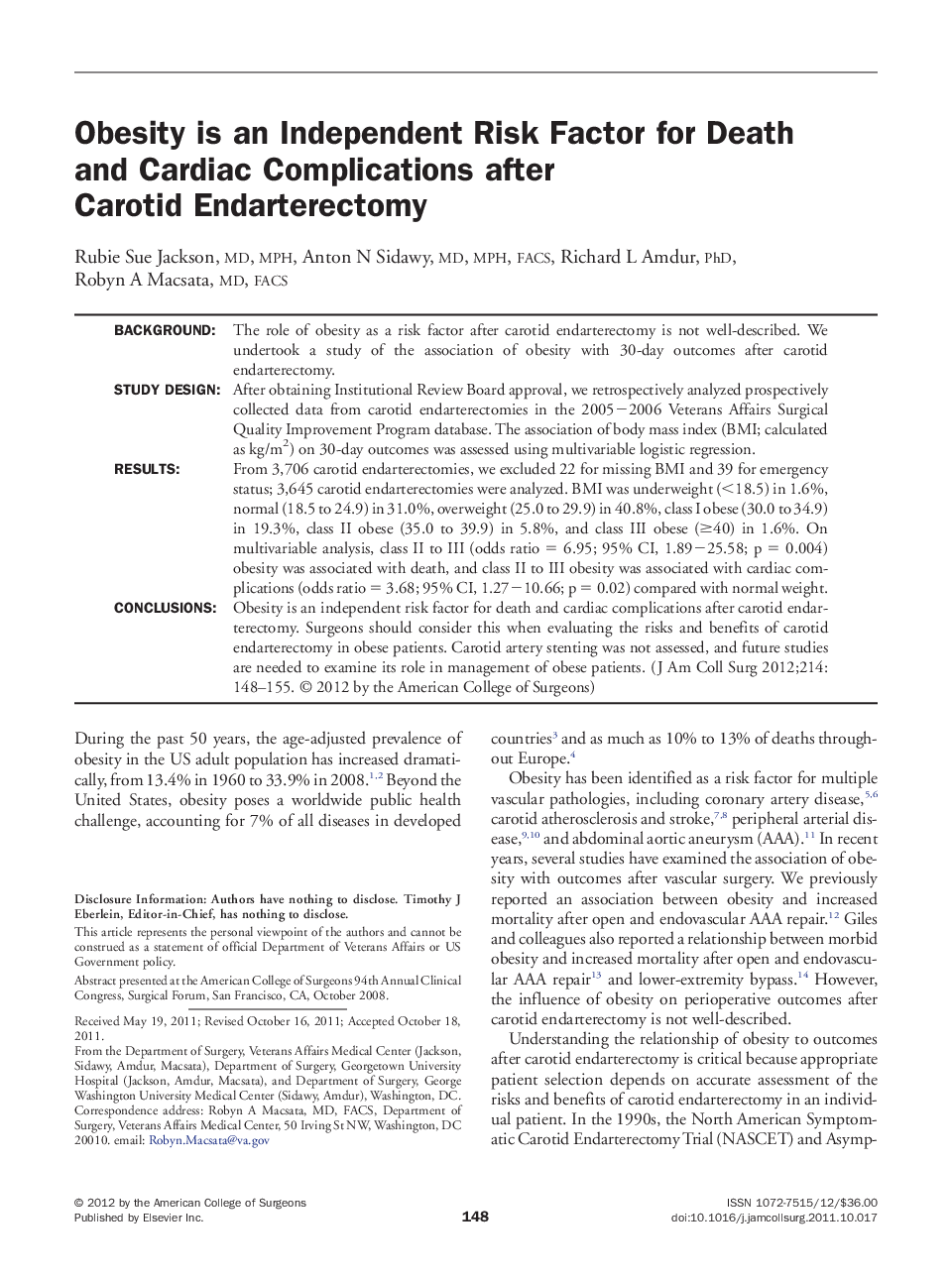| Article ID | Journal | Published Year | Pages | File Type |
|---|---|---|---|---|
| 4292480 | Journal of the American College of Surgeons | 2012 | 8 Pages |
BackgroundThe role of obesity as a risk factor after carotid endarterectomy is not well-described. We undertook a study of the association of obesity with 30-day outcomes after carotid endarterectomy.Study DesignAfter obtaining Institutional Review Board approval, we retrospectively analyzed prospectively collected data from carotid endarterectomies in the 2005−2006 Veterans Affairs Surgical Quality Improvement Program database. The association of body mass index (BMI; calculated as kg/m2) on 30-day outcomes was assessed using multivariable logistic regression.ResultsFrom 3,706 carotid endarterectomies, we excluded 22 for missing BMI and 39 for emergency status; 3,645 carotid endarterectomies were analyzed. BMI was underweight (<18.5) in 1.6%, normal (18.5 to 24.9) in 31.0%, overweight (25.0 to 29.9) in 40.8%, class I obese (30.0 to 34.9) in 19.3%, class II obese (35.0 to 39.9) in 5.8%, and class III obese (≥40) in 1.6%. On multivariable analysis, class II to III (odds ratio = 6.95; 95% CI, 1.89−25.58; p = 0.004) obesity was associated with death, and class II to III obesity was associated with cardiac complications (odds ratio = 3.68; 95% CI, 1.27−10.66; p = 0.02) compared with normal weight.ConclusionsObesity is an independent risk factor for death and cardiac complications after carotid endarterectomy. Surgeons should consider this when evaluating the risks and benefits of carotid endarterectomy in obese patients. Carotid artery stenting was not assessed, and future studies are needed to examine its role in management of obese patients.
